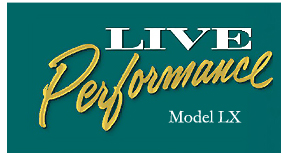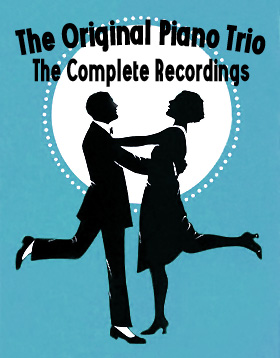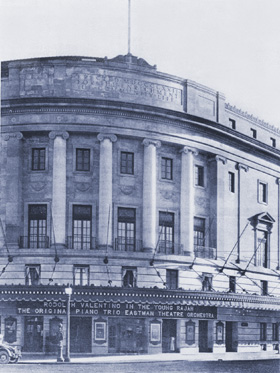


The Original Piano Trio
The Complete Recordings, Vol.1 Catalog No. MH-4007
The Original Piano Trio
The Complete Recordings, Vol.2 Catalog No. MH-4008

|
Now Available Exclusively for the Live Performance Model LX! Live Performance proudly presents The Original Piano Trio: The Complete Recordings, a collection of dazzling piano performances translated from Ampico reproducing piano rolls and artfully adapted for playback on the high-resolution Model LX system. The Original Piano Trio was the creation of Edgar Fairchild, Herbert Clair and George Dilworth, three highly-skilled pianists and recording artists of the early 1920s. Each had enjoyed success independently, and their collaboration as a trio produced a truly distinctive sound that soon became popular in concerts, nightclubs and phonograph recordings. Shortly after the group was formed in 1922, the trio appeared in George White's Scandals with Paul Whiteman's Orchestra, playing George Gershwin's I'll Build a Stairway to Paradise onstage for the finale of the first act. Their first recordings appeared the same year. The trio's musical style typifies the dawn of the Jazz Age, with some elements derived from the ragtime music that peaked in popularity only a few years before. Using two pianos (sometimes three), Fairchild, Clair and Dilworth played music arranged in a rich, orchestral fashion, somewhat in the style of the dance orchestras of the time, resulting in a lush musical texture. There were numerous opportunities for each pianist to display his prowess at the keyboard, and the performances are filled with delightfully creative flourishes and ornamentation. Popular music of the time had begun to make heavy use of contractions, slang, and nonsense syllables in its lyrics. Some of this "popular" usage even spilled over into the titles recorded by The Original Piano Trio. In Toot, Toot, Tootsie, a song that tells the story of parting lovers as the boyfriend must board a train, the "toot" of the train whistle is coupled with the woman's pet name "Tootsie". Da-Da-Da My Darling employs alliterative nonsense syllables. Imitative lyrics and titles abounded, including titles such as Boo-Hoo-Hoo (You're Gonna Cry When I'm Gone). As their popularity grew, The Original Piano Trio was engaged by the American Piano Company to record select performances as reproducing piano rolls, enabling their performances to be played "live" on Ampico reproducing pianos in the luxurious homes of the well-to-do. The Original Piano Trio recorded twenty-four music rolls for the American Piano Company. These rolls were issued in a short time, spanning the 12 months from January, 1922 through January, 1923, an average of two rolls per month. The rolls must have sold well, judging from their presence in almost every large collection of Ampico rolls, but their representation is uneven. Some, such as Gershwin's I'll Build a Stairway to Paradise, are easy to find. Some others are quite rare, with only one or two known copies still in existence. Live Performance located, borrowed, and transcribed all twenty-four of The Original Piano Trio's rolls using a specially-designed optical scanner. Proprietary software recovered the punch matrix of each master roll from which the production rolls were made. These were processed using a software emulator that accurately simulated the behavior of the pneumatic Ampico mechanisms the rolls were designed to control. The result is a high-quality translation from The Original Piano Trio's Ampico recordings to a form suitable for use on the Model LX system. When you play these albums, you will hear exactly what Ampico owners heard in 1922-- lively music, intended for dancing, that now evokes a long-gone era of fun and celebration. Please contact us for more information on this exciting new release. |
